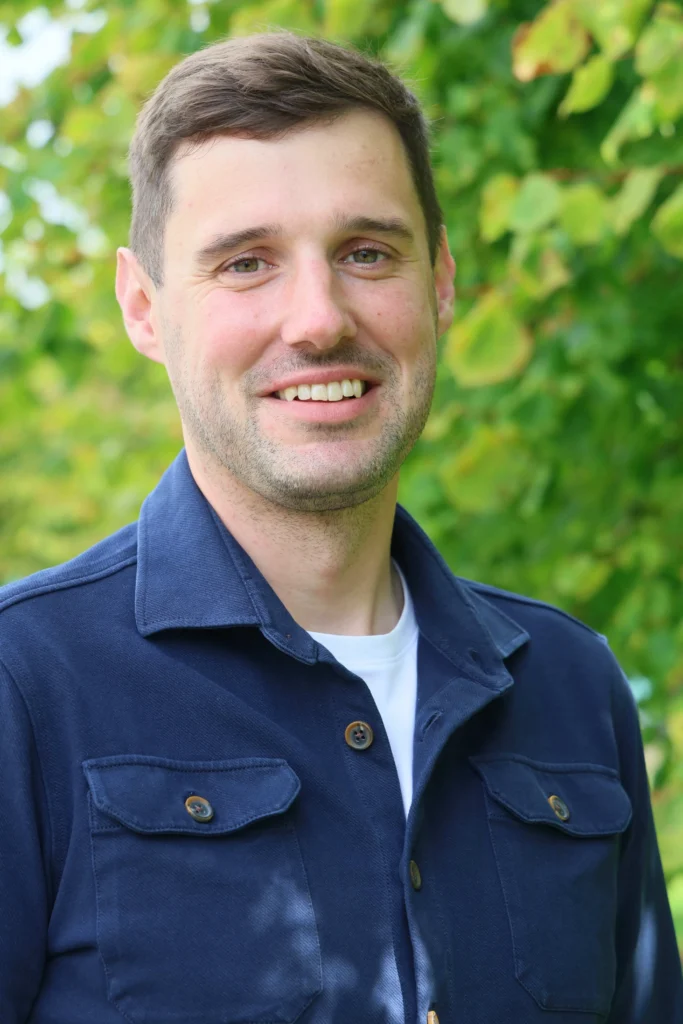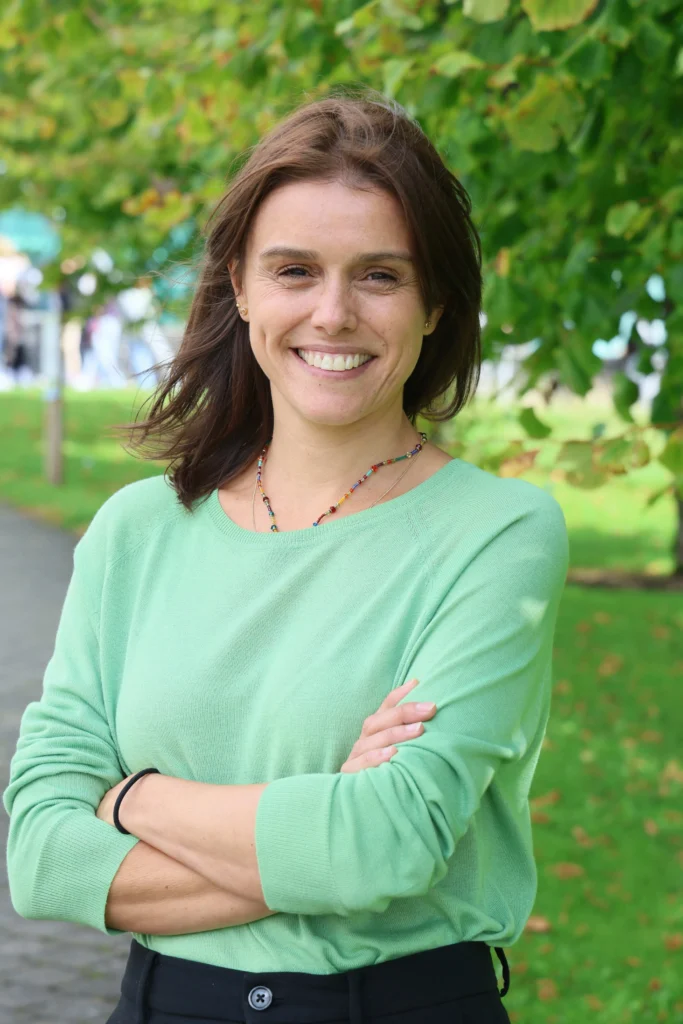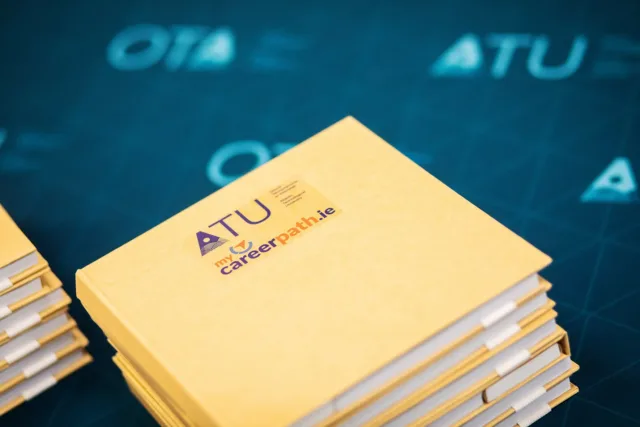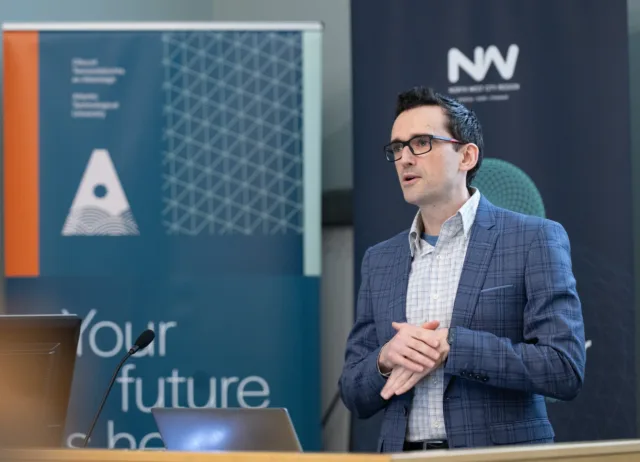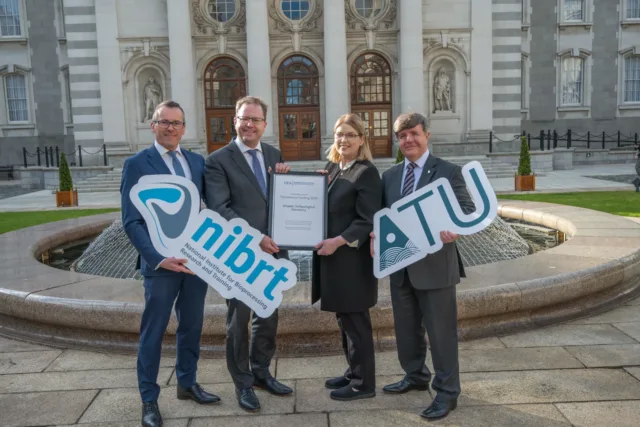Two ATU academics among 10 National Challenge Fund finalists to win funding for projects aimed at delivering solutions to environmental and societal issues
Two ATU academics, Dr Amaya Vega and Dr Niall Maloney, have been successful in securing National Challenge Funding for research projects in two thematic areas, Sustainable Communities (transport) and Future Food Systems (aquaculture).
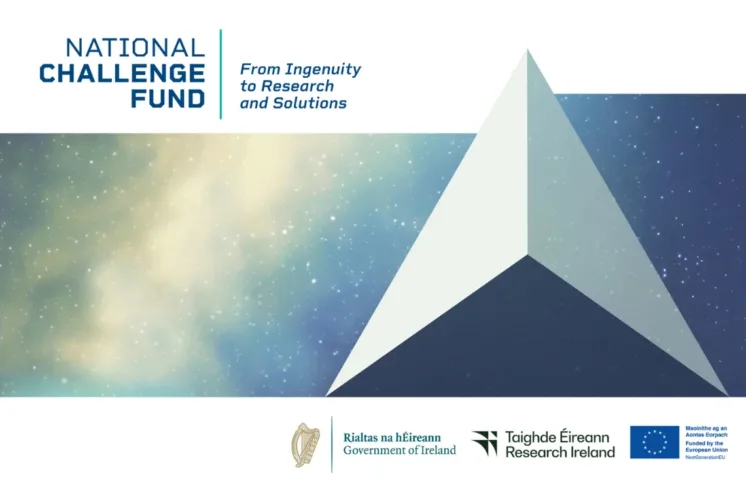
Two ATU academics, Dr Amaya Vega and Dr Niall Maloney, have been successful in securing National Challenge Funding for research projects in two thematic areas, Sustainable Communities (transport) and Future Food Systems (aquaculture). They are among ten finalists in the competitive programme announced this week (Tues 25 March 2025) by Higher Education Minister James Lawless, TD.
Dr Amaya Vega, lecturer in Transport Economics, ATU Galway School of Business and Dr Myra Lydon, University of Galway, are working on a project titled EMBRACE – Mobility: Equitable Management of Bridges for Resilient Accessible Communities to Ensure Mobility.
Dr Vega explains the aim of the project: “We all remember Storm Bert last November, which caused widespread flooding and landslides resulting in over 100 road closures across the west coast of Ireland, with the majority in rural areas. This extreme weather event highlights the major role that our road network plays in the resilience of rural communities in the aftermath of storms.
EMBRACE Mobility develops a new decision support tool for bridge asset managers to prioritise the mobility vulnerability of rural communities by integrating spatial accessibility metrics into decision-making. EMBRACE Mobility supports a holistic evaluation of societal impacts, enables community-level bridge risk assessment through stakeholder engagement, interdisciplinary insights, and a scalable, transferable approach”.
The EMBRACE project is supported and advised by Dr Helen McHenry, Policy Analyst, Western Development Commission, as the Societal Impact Champion.
Dr Niall Maloney, lecturer in Physics and Instrumentation, ATU Galway School of Science and Computing, and Professor Enda McGlynn, School of Physical Sciences, Dublin City University, are working with Societal Impact Champion Catherine McManus (Mowi Ireland) on a project titled “NanoSA – Using Nanostructures for Sustainable Aquaculture”.
Dr Maloney explains the project: “Regular biological testing is essential to maintaining high standards of animal welfare in aquaculture. However, current methods for detecting bacterial and viral pathogens can take several days, as samples must be sent to centralized laboratories, often outside of Ireland. Many aquatic diseases present with similar symptoms, making rapid and accurate on-site detection critical for effective disease management. Reliable point-of-care diagnostic tools are lacking in this sector, yet they are crucial for enabling faster, more precise treatment decisions.
We are developing innovative nanostructure-integrated lateral flow assays that will deliver on-site results in just 60 minutes. These tests will not only provide rapid detection but also offer quantitative insights into infection levels, allowing biologists and veterinarians to make informed, timely interventions. Developed in close collaboration with aquaculture producers and fish health experts, we are confident that this technology will enhance animal welfare and reduce losses at the very first stage of the food supply chain.”
To read more about the projects please see; https://www.linkedin.com/company/103393819/admin/dashboard/ and www.nanosalab.com
The National Challenge Fund, funded by the EU’s Recovery and Resilience Facility, has supported 96 teams to identify problems related to Ireland’s Green Transition and Digital Transformation and collaborate directly with stakeholders most affected to create real and tangible solutions.
The 10 teams are split into two thematic areas – Sustainable Communities and Future Food Systems.
The Sustainable Communities finalists are researching solutions to key challenges in transportation infrastructure maintenance, waste polyester recycling, sustainable construction methods, mitigating bridge failure risk, and empowering communities to adopt more sustainable modes of transport.
The Future Food Systems finalists are seeking solutions for sustainable, productive and resilient food systems ie sustainable alternative protein sources, disease management in aquaculture, recycling critical raw materials for agrifood systems, mitigating crop losses due to fungal disease, and decision-support systems for food production in greenhouses.
Each team is being awarded up to €500,000 funding for the next 12 months to advance prototyping activities and demonstrate how the solutions they are developing can create tangible value by addressing the specific societal needs identified and refined in the previous phases of the funding programme.
Announcing the funded projects on Tuesday, the Higher Education Minister James Lawless, TD, said: ““These teams are working on innovative, solution-focused projects that will have a real and positive impact across society, the economy, and the environment. They are exemplars of the positive impact research and innovation funding can deliver. I look forward to seeing these research teams progress their projects over the next year as they continue to support Ireland’s digital transformation and green transition.”
Celine Fitzgerald, Interim CEO, Research Ireland, said: “This announcement marks a key milestone for the National Challenge Fund as the final 10 research teams receive Grow Phase funding becoming finalists in this fast-passed funding programme. I wish all the finalist teams success as they continue to work towards delivering their ambitious solutions to key national challenges.”
Photo captions:
Photo 1: Dr Niall Maloney, ATU School of Science and Computing
Photo 2: Dr Amaya Vega, ATU Galway School of Business
